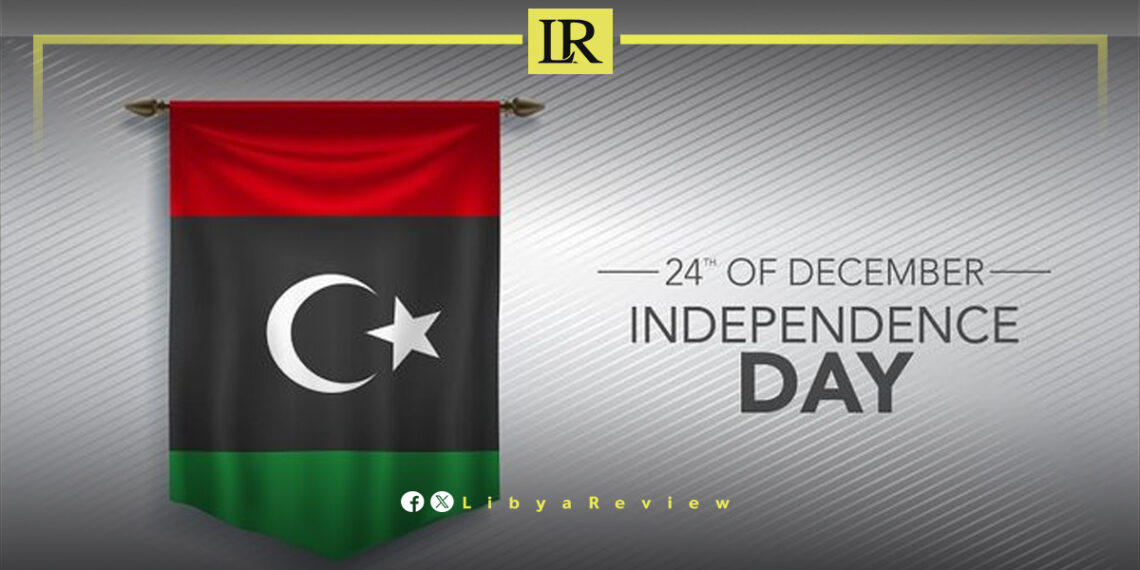Libya marks its 73rd Independence Day with mixed emotions, as ongoing political, economic, and security crises overshadow celebrations.
The country remains fractured, with delays in elections and disunity among key institutions stalling progress toward stability. This year, leaders and institutions have used the occasion to renew calls for national unity, sovereignty, and an end to foreign interference, reflecting the deep challenges Libya faces.
Field Marshal Khalifa Haftar, Commander of the Libyan National Army (LNA), addressed the nation with a strong message about the urgent need for reform. Haftar emphasized the importance of building a constitutional state that ensures justice, equality, and opportunity for all Libyans. He questioned the value of celebrating independence while the nation’s foundations remain fragmented.
“How can we celebrate independence when Libya’s unity is fractured, its sovereignty undermined, and its destiny dictated by external forces?” Haftar asked. He stressed that true independence is not merely a historic event but a living reality that requires sovereignty, freedom, and the ability of the Libyan people to shape their own future.
The Libyan House of Representatives echoed these remarks, urging the public to draw inspiration from the unity that brought about independence in 1951. The parliament called for national cohesion as the key to overcoming Libya’s challenges and building a stable and prosperous future.
The United Nations Support Mission in Libya (UNSMIL) also weighed in, urging Libyans to honor their founders’ legacy and work collectively to protect the nation’s sovereignty. UNSMIL expressed regret over the continued failure to hold elections, which has delayed Libyans’ hopes of choosing their leaders and restoring legitimacy to the country’s institutions.
Public frustration over foreign interference has also come to the forefront. In Bani Walid, Libyan tribes organized protests under the slogan “No to Foreign Interference,” demanding an end to external meddling in Libya’s affairs. The protests were met with arrests by forces loyal to the Government of National Unity, sparking outrage and calls for the release of detainees.
As Libya reflects on its independence, the day serves as a critical reminder of the need for national unity and cooperation. Overcoming internal divisions and external pressures remains vital for building a state that ensures stability, prosperity, and true sovereignty for all Libyans.
Libya’s journey since the fall of Muammar Gaddafi in 2011 has been fraught with instability. The country has faced intermittent conflict, economic stagnation, and a lack of centralized authority. While a ceasefire agreement in 2020 brought temporary calm, it failed to address the underlying issues of fragmentation and governance.
Key institutions, including the military, remain divided. Haftar’s Libyan National Army (LNA) controls much of the east and south, while Tripoli is dominated by armed groups aligned with the GNU. The international community has repeatedly called for the unification of military and security institutions as a cornerstone for national stability.
Economic challenges compound these political divisions. Libya’s oil sector, which accounts for most of state revenue, has often been a point of contention between rival factions. Strikes, blockades, and disputes over oil revenues have disrupted production, further straining the country’s fragile economy.
Despite the challenges, Libya’s Independence Day serves as a moment for reflection and renewal. Leaders, citizens, and international partners alike recognize the need for unity and reform to pave the way for a brighter future. Achieving stability and sovereignty requires overcoming divisions, holding credible elections, and ensuring that all Libyans benefit from the country’s wealth and potential.
As Libyans remember the sacrifices that led to their independence in 1951, many hope that the spirit of unity and resilience can guide the nation toward lasting peace and prosperity.


